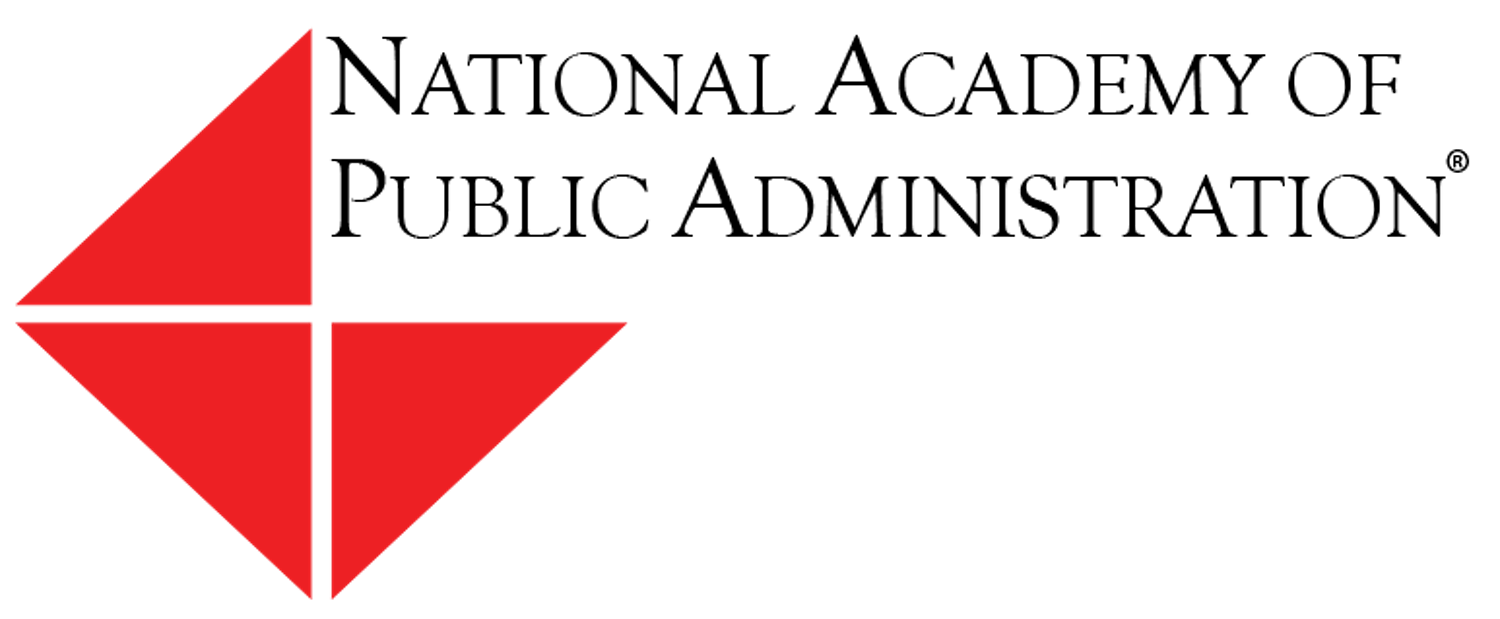
The National Academy of Public Administration Announces The Center for Intergovernmental Partnerships: New Initiative Will Facilitate Collaboration Across All Levels of Government
Contact:
Betsy Holahan
bholahan@greatpointstrategies.com
Post Date: September 07, 2021
WASHINGTON, D.C. – The National Academy of Public Administration today announced it has established the Center for Intergovernmental Partnerships (CIP) to strengthen collaboration and cooperation among leaders at all levels of U.S. government in the face of the greatest challenges facing the nation.
"Effective problem-solving requires federal, state, and local governments to work successfully together, and often with the private and nonprofit sectors," said Terry Gerton, President and CEO of the Academy. "We are excited to launch the Center for Intergovernmental Partnerships. Through cutting-edge research and bringing practitioners across silos together, the Center will identify leading practices and develop new approaches to help all levels of American government work together more effectively."
The Center's initial focus will be on the challenges facing governments to wisely use the significant funding from Congress to combat COVID-19, such as the CARES Act, the American Rescue Plan, and federal agencies' base budgets. The Academy's recent study for the National Association of Counties (NACo) of CARES Act funding underscored the need for a better coordinated national response to manage such a complex and urgent program. This will continue to be the case for future emergency and national recovery funding.
Initially, the Center will work with its partner organizations to create more effective intergovernmental partnerships in areas that include:
- Work with governments at all levels and across sectors to identify best and promising practices for establishing accountability and visibility for national recovery programs.
- Examine the current state of coordination between the federal government and its state, local and tribal partners and recommend new organizational arrangements that will facilitate rapid and clear communication about regulations, funds availability, and priorities across all federal programs.
• Establish a new, national, trusted source of information and insight that improves the performance of intergovernmental systems.
The Academy's Center for Intergovernmental Partnerships is made possible in part by the generous pledges of financial support from the National Association of Counties (NACo) and the National Conference of State Legislatures (NCSL). Center staff will also work closely with several associations representing state and local government officials, including the National Governors Association (NGA), the Council of State Governments (CSG), the International City/County Management Association (ICMA), the National League of Cities (NLC), the U.S. Conference of Mayors (USCM), and the Government Finance Officers Association (GFOA).
“America’s county officials are excited to join the Academy to keep the flame of our nation’s unique intergovernmental system alive for future generations,” said Matthew Chase, CEO/Executive Director of the National Association of Counties. “With today’s mounting, complex public policy issues, it is far too easy to default to the standard
partisan responses. The new Center for Intergovernmental Partnerships will ensure there remains a national forum to bring publicly elected officials and their senior advisors together, from all levels of government and all political perspectives, to pursue our shared purpose to represent the broader, public interest in public affairs.”
“The Academy’s new Center for Intergovernmental Partnerships debuts at a vital time when legislators are hungry for better information so they can make decisions about how to tackle the many challenges facing their states as the pandemic continues,” said Tim Storey, Executive Director of the National Conference of State Legislatures. “Lawmakers need more practical research about how best to work across all levels of government to solve America’s problems. They are eager to see what the Center produces to help them serve their states and enact informed policy.”
The Center will be headed up by Director Dr. Nancy Augustine, a Project Director at the Academy and a Professorial Lecturer at the George Washington University's Trachtenberg School. Dr. Augustine's expertise includes state and local governance, urban policy, community and economic development, strategic planning, public management, infrastructure, budget and finance, citizen participation, and social support programs.
CIP Executive Board members include Academy Fellows Henry Cisneros, former Secretary of the U.S. Department of Housing and Urban Development (HUD) and former Mayor of San Antonio, Texas; Robert O'Neill, former city and county official in Virginia and former President of the International City/County Management Association (ICMA); Ray Scheppach, former Deputy Director of the Congressional Budget Office (CBO) and former Executive Director of the National Governors Association (NGA); Sarah Rosen Wartell, former Deputy Assistant to the President and Deputy Director of the National Economic Council, and now President of Urban Institute; and Anthony Williams, former Mayor of the District of Columbia and former Chief Financial Officer of the U.S. Department of Agriculture.
To learn more about the Center for Intergovernmental Partnerships, click here.
About the National Academy of Public Administration
Chartered by Congress to provide non-partisan expert advice, the Academy is an independent, nonprofit, and non-partisan organization established in 1967 to assist government leaders in building more effective, efficient, accountable, and transparent organizations. Learn more at www.napawash.org